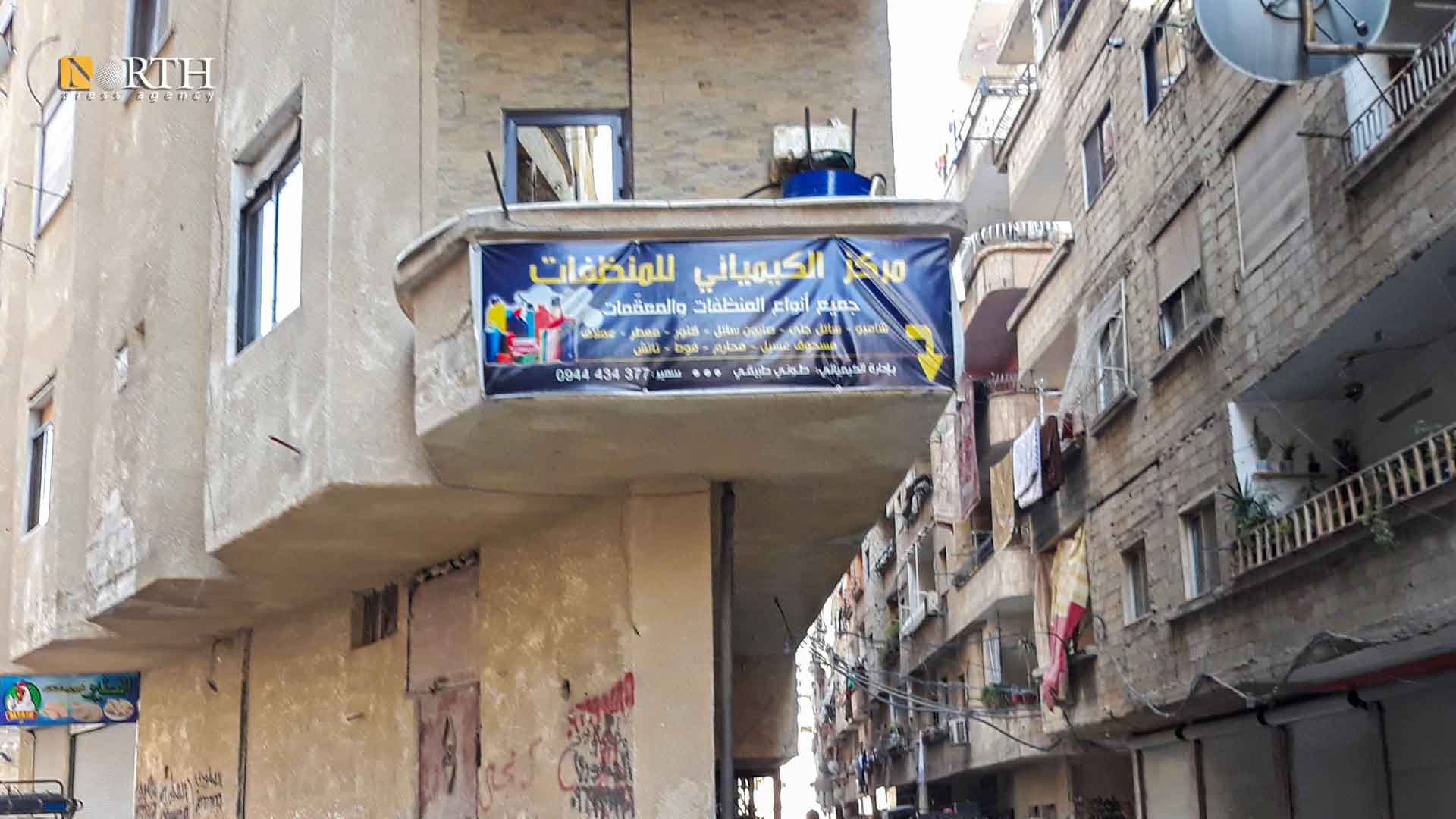DAMASCUS, Syria (North Press) – Nowadays, Residents in the Syrian capital, Damascus, are resorting to replacing many basic non-food commodities with locally manufactured ones that lack quality because they are cheap, in light of the deteriorating living conditions the country is going through and the successive government decisions that increase the financial burden.
Most of the families buy home-made alternatives to detergents, glass and batteries, because their prices are relatively cheaper compared to the brands and items offered in the market.
Hand-made
Haytham Raslan, 29, a graduate of the Faculty of Chemistry at Damascus University, told North Press that he is working on manufacturing detergents manually so that he can secure them for his family.
He added that in light of the high prices of traditional detergents, he had no better choice than trying to benefit from his practical experience in securing the needs of his family and thinking of an additional source of income.
Raslan pointed out that costs can be saved by up to 50%, depending on what is produced manually and locally, instead of the goods offered in the market.
Saber Yaqoub, 40, a supermarket owner in the Sheikh Sa’ad area of al-Mezzah, said that the demand for buying handmade detergents has recently increased.
“The difference between the handmade dishwashing liquid container and the one imported from the factories via traders is approximately 2,000 Syrian Pounds (SYP).
Shopkeepers in Damascus neighborhoods prefer to deal with local producers of detergents and foodstuffs such as milk and vegetables, because they offer more suitable prices than traditional dealers for these materials.
This is happening at a time when 90% of Syrians live below the poverty line, according to the World Health Organization (WHO).
More than 12 million people in Syria are struggling to find enough food, according to the United Nations World Food Program (WFP).
Low quality
If it is considered that detergents a necessity amid the spread of coronavirus, batteries are indispensable for Damascus residents amid long power cuts.
Hassan Rashid, 50, a government employee in the Sbineh region in Rif Dimashq and father of four, said that he needed a 12 ampere battery every six months to secure lighting for his home.
Periodic battery costs of up to 60,000 SYP led Rashid to use home-made batteries, “although they are of poor quality and are not guaranteed.”
Khaled Shehadeh, 31, owner of a shop that sells home-made batteries in Sahnaya region in Rif Dimashq, said that “although their prices are also high, they are still less expensive than the imported ready-made ones.”
He added that the collapse of the value of the lira affects even domestic production if it depends on raw materials affected by the rise in the exchange rate of the US dollar.
Shehadeh pointed out that the prices of batteries in the market ranged between 60,000 and 700,000 SYP, while locally manufactured ones save up to 40% of those costs.
Governmental decisions
Amidst the deteriorating living conditions of the population, government decisions are successive, where specialists say that they are added to the burdens of families, without solutions to the successive crises.
Decisions were issued to reduce fuel allocations for cars and to limit small quantities of bread for families, followed by decisions such as stopping the import of smartphones and preventing the import of glass.
Last week, Damascus Chamber of Industry expressed its objection to the law banning the import of glass, due to its negative effects on workshops and factories.
The high price of glass has pushed some residents to rely on alternatives such as nylon and cardboard to cover their windows.
Yara Hadi, 42, a housewife in al-Qazzaz neighborhood, said she used reinforced nylon instead of glass because of the high price.
She stated that she used “two layers of nylon, with a layer of cardboard between them, to increase the thickness and avoid cold air entering the house.”

